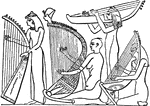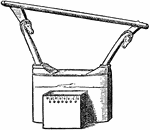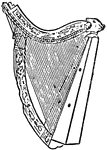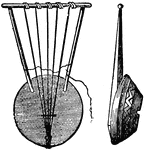Clipart tagged: ‘Stringed’

Harp
"This primitive-looking instrument was played horizontally, being born upon the performer's shoulder.…

Harp
"This primitive-looking instrument was played horizontally, being born upon the performer's shoulder.…

Lute
"The European lute is derived in form and name from the Arabic "el ud," "the wood," the consonant of…





